The Huawei Mate 20 Pro is one of the most impressive, complete smartphones ever produced by Huawei. It is easily capable of competing with 2 other smartphone behemoths of 2018 – the Apple iPhone XS Max and Samsung Galaxy Note 9. Back in 2018, it was the first smartphone to offer a 3x optical zoom.
With every new phone raising the bar a little higher, the Huawei Mate 20 Pro has just enough premium features to stand out from the rest. It is a powerful device with three rear cameras, set up in a distinct square bump. It has some bold signature moves that newer devices released in 2019 are just starting to sport.
In several ways, the Mate 20 Pro is a magnificent device that rivals other top-tier phones from the likes of Samsung, Google, and Apple. But top-tier specs and features call for a top-tier price, and that is what the Mate 20 Pro costs. So the question naturally arises, is it worth the money?
Read on to find out.
Contents
Huawei Mate 20 Pro versus Huawei Mate 20
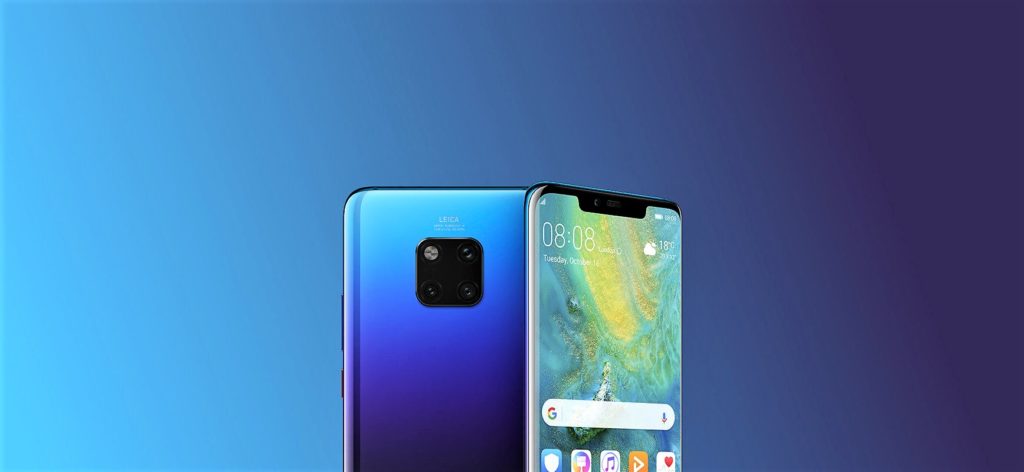
A few months back when the Mate 20 Pro was launched, it cost an eye-watering ~$1200. It’s been 8 months since then, and right now it retails in the UK for about £520 or about ~$656 which if you think about, is quite the value purchase. I say value since you have the OnePlus 7 Pro which sits about $100 more than this and doesn’t offer more features than the Mate 20 Pro. Coupled with a world-class camera system that the Mate 20 Pro boasts of, dare I say, phenomenal value as of now.
Coming to the Mate 20 Pro’s smaller brethren, the Mate 20 costs £429 or ~$541. It offers a bit less on the screen, memory, camera, slower fast charging, and water & dust ingress protection departments. Coming to think of it now, the Mate 20 Pro sounds like an even better purchase for about ~$110 more.
Below is the comparison which should help you decide.
| HUAWEI MATE 20 PRO | HUAWEI MATE 20 | |
|---|---|---|
| Display | 6.39-inch curved OLED 3,120 x 1,440 resolution 545 ppi 19.5:9 aspect ratio | 6.53-inch FHD+ LCD 2,160 x 1,080 resolution 402 ppi 18.7:9 aspect ratio |
| Processor | Huawei Kirin 980 Octa-core CPU (2 @ 2.6GHz, 2 @ 1.92GHz, 4 @ 1.8GHz) Dual NPU | Huawei Kirin 980 Octa-core CPU (2 @ 2.6GHz, 2 @ 1.92GHz, 4 @ 1.8GHz) Dual NPU |
| GPU | Mali-G76 720MHz | Mali-G76 720MHz |
| RAM | 6GB | 4/6GB |
| Storage | 128GB NM (nano memory) card slot for memory expansion | 128GB NM (nano memory) card slot for memory expansion |
| Battery | 4,200mAh 40W Huawei Supercharge Can be used as a wireless charger for other Qi-enabled devices 15W wireless charging | 4,000mAh 22.5W Huawei Supercharge |
| Cameras | Rear: Main: 40MP sensor, f/1.8 aperture Second: 8MP 3x telephoto sensor, OIS, f/2.4 aperture Third: 20MP ultra-wide sensor, f/2.2 aperture, 16mm focal length equivalent Front: 24MP RGB sensor | Rear: Main: 12MP sensor, f/1.8 aperture Second: 8MP 2x telephoto sensor, OIS, f/2.4 aperture Third: 16MP ultra-wide sensor, f/2.2 aperture, 16mm focal length equivalent Front: 24MP RGB sensor |
| Biometric Security | In-display fingerprint sensor Dot projector, TOF proximity sensor, flood illuminator, and an IR camera for face-unlock | Rear-facing fingerprint sensor |
| Headphone jack | No | Yes |
| Dimensions | 157.8 x 72.3 x 8.6mm 189g | 158.2 x 77.2 x 8.3mm 188g |
| IP rating | IP68 | IP53 |
| Software | Android 9.0 Pie with EMUI 9.0 | Android 9.0 Pie with EMUI 9.0 |
| Colors | Pink Gold, Midnight Blue, Emerald Green, Twilight, Black | Pink Gold, Midnight Blue, Emerald Green, Twilight, Black |
In the box

- SIM ejector tool
- Quick Start Guide
- TPU Case
- 40W Supercharge Adapter
- USB-A to USB-C charging cable
- USB-C earphones
- 3.5mm to USB-C adapter
Under the hood

| OPERATING SYSTEM | Android 9.0 Pie (EMUI 9.1) |
| DISPLAY | OLED 6.39 inches 1440 x 3120(~538ppi) HDR10 DCI-P3 |
| PROCESSOR | HiSilicon Kirin 980 (7nm) Octa-core (2x2.6 GHz Cortex-A76 & 2x1.92 GHz Cortex-A76 & 4x1.8 GHz Cortex-A55) |
| RAM | 6/8GB |
| GPU | Mali-G76 MP10 |
| INTERNAL STORAGE | 128/256GB |
| USB | 3.1 Type-C 1.0 Reversible Connector |
| WLAN | 802.11 a/b/g/n/ac Dual Band |
| BLUETOOTH | 5.0, aptX support |
| NFC | Yes |
| BATTERY | 4200mAh 40W Fast Charging 15W Fast Wireless Charging Reverse Wireless Charging |
| PRICE (UNLOCKED) | £520 or ~$656 |
Huawei Mate 20 Pro | Design
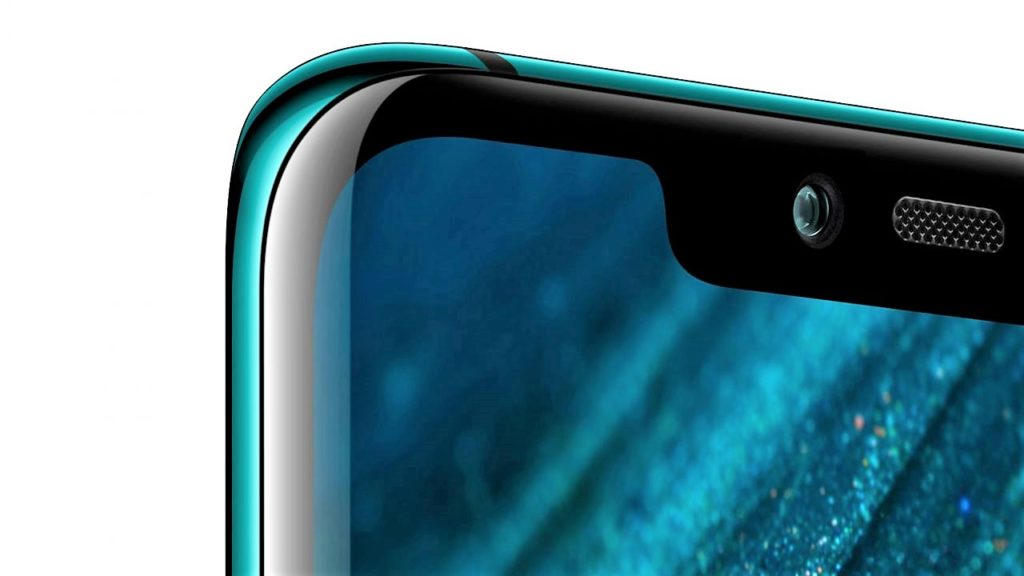
The very first thing you will notice about the Huawei Mate 20 Pro when unboxing is its similarity to Samsung’s last year flagship – the Galaxy S9. The precise curved glass design used by Huawei is a looker. With smooth curves of the 3D glass blending in perfectly with the phone’s thin, cool-to-touch aluminum frame. While you won’t be able to say the design is innovative, it does successfully build upon the S9’s elegant design.
The Mate 20 comes in at 189 grams which are considerably heavier in-hand considering the S9’s 163 grams. Also helping with the premium feel is the hyper optical pattern on the backplate. Being a top-tier phone, it requires some additional differentiation, and Huawei chose to let its cameras do the talking. The Mate 20 Pro collects all three of its rear-facing cameras and the flash in a raised-square block. This, in turn, gives the phone a clean, partially symmetrical look.
The Mate 20 Pro has full IP68 water and dust ingress protection, which has become the industry standard these days. Lastly, the Mate 20 Pro ditches the 3.5mm headphone jack, which means getting to use your standard pair of wired headphones will require you an adapter. If that’s a dealbreaker for you, consider getting the Mate 20 or Mate 20 X – both of which include the audio port.
Huawei Mate 20 Pro | Display

The Huawei Mate 20 Pro sports a 6.39-inch OLED display, which is crisp and gorgeous. It has very thin bezels, more so without the lower speaker grille. The sound instead comes out of the USB-C port, since the speaker is placed behind the USB-C port. The sound isn’t much muffled when something is plugged in.
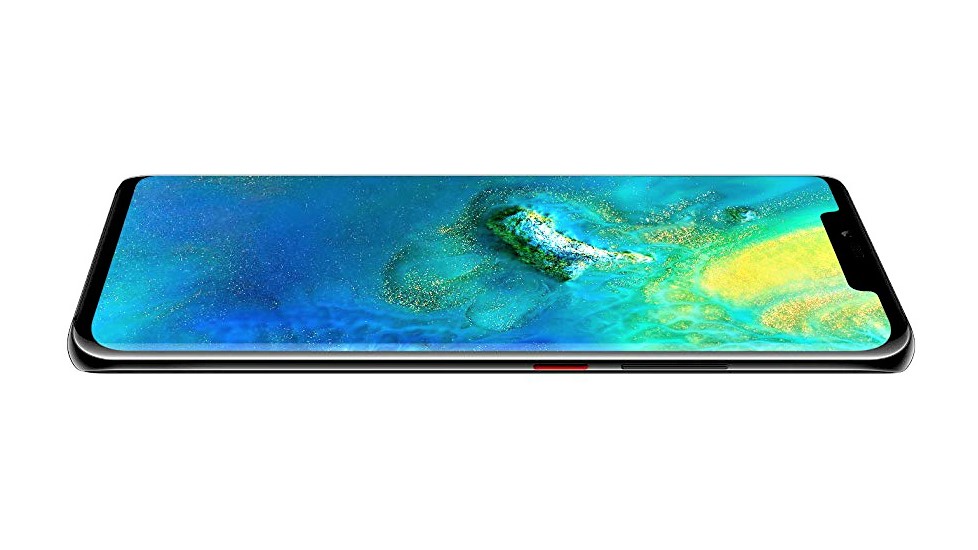
The display boasts of a QHD+ panel at 1440 x 3120 resolution at 537ppi pixel density. That put the Mate 20 Pro ahead of the Google Pixel 3 XL and slightly past the Samsung Galaxy S10 Plus. While the content for 19.5:9 aspect ratio is on the rise, sadly there isn’t much of that content readily available. Then there’s no split-screen multitasking support either like Samsung’s phones have had with big screens for years.
There are options to shift the color temperature and a blue light filter. You can also change the resolution of the Mate 20 Pro to FullHD+ or lower which reduces battery drain. Also, it suffices to say that the Mate 20 Pro sports a brighter screen than its smaller brethren. There’s also an in-display optical fingerprint sensor which is almost reliable – as long as your finger is in the right place.
Huawei Mate 20 Pro | Camera
If you’re considering top-tier smartphone, you must have high expectations from their cameras with little to no tolerance for underperforming ones. Now, the good news is that the Mate 20 Pro will satisfy your need for great photos.
- 40 MP, f/1.8, 27mm (wide), 1/1.7″, PDAF/Laser AF (rear)
- 8 MP, f/2.4, 80mm (telephoto), 1/4″, PDAF/Laser AF, OIS, 3x optical zoom (rear)
- 20 MP, f/2.2, 16mm (ultrawide), 1/2.7″, PDAF/Laser AF (rear)
- 24 MP, f/2.0, 26mm (wide) (front)
Rear Camera

Giving credit where it’s due; the P20 Pro ushered in an era of great Huawei cameras and the Mate 20 Pro benefits from that. It inherits the 40MP wide-angle f/1.8 lens and the 8MP f/2.4 3x optical zoom telephoto lens with OIS. Leica has once again worked on the rear cameras but not the front ones. Completing the triad of rear-facing cameras is the new 16MP ultra-wide angle f/2.2 lens. It expands the capabilities of the phone, letting you take a wider variety of shots.
Although the ultra-wide angle lens isn’t without its drawbacks. The edges of the photos can be little warped. It also doesn’t seem to benefit from the Semi-HDR contrast effect that benefits shots taken with the other lenses. Regardless, the Mate 20 Pro takes great photos. It holds its own when compared with other smartphones, though, its standard mode struggles with contrast. But, the Mate 20 Pro’s overall low-light performance is far superior to that of almost any other smartphone, especially with Night mode.
The phone’s 3x optical zoom does a nice job of peeping distant objects, with the hybrid 5x zoom adding a digital touch to give you a bit more. Optics though are only a part of the story. Helping out the Mate 20 Pro’s cameras are 2 NPU’s or Neural Processing Units that use AI to supposedly help you get the perfect shot. There’s also a macro mode that allows you to get within 2.5cm of your subject and retain focus, which combined with those powerful lenses, lead to some brilliant and detailed shots.
Front Camera

To many of you, smartphones are all about selfies. Now, if you really care for selfie quality, you are better off looking somewhere else. The Huawei Mate 20 pro’s front cameras get the job done, but that’s pretty much it. It is far from being a serious contender in this department. The 24MP f/2.0 camera has a limited range of focus, as such objects that are a few feet further may appear blurry. It does support HDR though.
Performance

The Huawei Mate 20 Pro runs on Huawei’s own latest offering – Kirin 980 with 6 or 8GB of RAM. In benchmarks, the phone isn’t a match for the Samsung Galaxy S10 Plus. It returns marginally lower scores on the Geekbench 4 multi-core processor test (9720 vs 10861) and significantly underperforms in the 3D Mark Slingshot graphics test (3220 vs 7810).
But as with benchmarks, they don’t tell the whole story. Such is the case of the Mate 20 Pro and I can say with confidence that this phone is far from slow. Navigating around the interface is butter-smooth and lag-free. Videos stream without any issue and playing graphically demanding titles such as Asphalt 9: Legends and PUBG were a breeze.
Software & Interface

The Mate 20 Pro runs the latest from Huawei,i.e., EMUI 9.1 atop Android 9.0 Pie. It will remind you very much of the iPhone in the way the apps are laid out across multiple home screens. The iPhonesque app layout is almost a ‘thing’ with phones from Chinese manufacturers. You can switch to an app drawer if you prefer.
Huawei like Samsung has seen fit to pre-install a selection of their own apps, some of which are duplicates of what Google offers. There’s no way to uninstall the Huawei apps either. Although in spite of the quirks, EMUI does have its advantages though with various customization controls on offer.
Battery Life

Now, if the camera set up on the Huawei Mate 20 Pro is the feature to brag about, the battery life is the underrated champ. This thing can put other similarly priced phones to shame when it comes to battery life.
The Huawei Mate 20 Pro packs in a 4200mAh battery, which is larger than any of the rivals, which in turn translates to excellent usage stats. A superfast charge takes the phone from empty to 70 percent in just 30 minutes when charging with the bundled 40W charger. You will seldom find yourself in the need for a power bank since all this thing needs is a quick top-up if you are ever to run out of juice. The phone comfortably lasts a full day, even with heavy usage. You can easily see this phone last around two days with moderate usage.
Now if you do find yourself with power to spare and you’re feeling generous, you can always share some juice with your friends using the 2-way wireless charging. When enabled, you can just about hold any Qi-enabled device to the back of the phone, and it will charge.
Pricing & Colors

Prices for the Huawei Mate 20 Pro currently is around $656 for the top-spec 8GB/256GB variant.
Colors available are – Emerald Green, Midnight Blue, Twilight, Pink Gold, Black
Verdict & Comparison
The Huawei Mate 20 Pro is the value for money smartphone you can buy right now. It doesn’t compromise on most of the things that matter – performance, battery, charging speed, cameras, storage capacity. It does manage to go toe-to-toe with last year’s flagship devices though it falls short of performance compared to phones sporting the newer Snapdragon 855 SoC.
Something to keep in mind though is EMUI, which to many in the US, isn’t very acceptable when compared to stock-ish or stock Android. So, if you are in the market in 2019 for something that has a great camera, great low-light performance, but not a great price-tag, the Mate 20 Pro is worth buying.
| Huawei Mate 20 Pro | Samsung Galaxy S10 Plus | LG V50 ThinQ (5G) | Google Pixel 3 XL | |
|---|---|---|---|---|
| Display size, resolution | 6.39-inch OLED; 3,120x1,440-pixels | 6.4-inch AMOLED; 3,040x1,440 pixels | 6.4-inch OLED; 3,120x1,440 pixels | 6.3-inch "flexible" OLED; 2,960x1,440 pixels |
| Pixel density | 538ppi | 522ppi | 564ppi | 523ppi |
| Dimensions (inches) | 6.21 x 2.85 x 0.34 in | 6.20 x 2.92 x 0.31 in | 6.26 x 3.0 x 0.33 in. | 6.2x3.0x3 in |
| Dimensions (millimeters) | 157.8 x 72.3 x 8.6 mm | 157.6 x 74.1 x 7.8 mm | 159.1 x 76.1 x 8.3 mm | 158x76.7x7.9 mm |
| Weight (ounces, grams) | 6.67 oz; 189g | 6.17 oz.; 175g | 6.46 oz.; 183g | 6.5 oz; 184g |
| Operating System | Android 9.0 with EMIU 9.1 | Android 9.0 with Samsung One UI | Android 9.0 Pie | Android 9.0 Pie |
| Camera | 40-megapixel (standard), 16-megapixel (ultra wide), 8-megapixel 3x optical zoom | 16-megapixel (ultrawide-angle), 12-megapixel (wide-angle), 12-megapixel (telephoto) | 12-megapixel (standard), 16-megapixel (wide-angle), 12-megapixel (telephoto) | 12.2-megapixel |
| Front-facing Camera | 24-megapixel | 10-megapixel, 8-megapixel | 8-megapixel (standard), 5-megapixel (wide) | Dual 8-megapixel |
| Video capture | 4K | 4K | 4K | 4K |
| Processor | Kirin 980 processor | Octa-core Qualcomm Snapdragon 855 | Octa-core Qualcomm Snapdragon 855 | Octa-core Qualcomm Snapdragon 845 |
| Storage | 128GB, 256GB | 128GB, 512GB, 1TB | 128GB | 64GB, 128GB |
| RAM | 6GB,8GB | 8GB, 12GB | 6GB | 4GB |
| Expandable storage | Up to 256GB with proprietary NM card | Up to 512GB | 2TB | None |
| Battery | 4,200-mAh | 4,100 mAh | 4,000 mAh | 3430 mAh |
| Fingerprint sensor | In-screen (optical) | In-Screen | Back | Back |
| Connector | USB-C | USB-C | USB-C | USB-C |
| Headphone jack | No | Yes | Yes | No |
| Special features | Camera night mode, 40w Huawei SuperCharge, 15w wireless charging, reverse charging, IP68 water resistance | Wireless PowerShare; hole punch screen notch; water resistant (IP68); Fast Wireless Charging 2.0 | 5G connectivity; water resistant (IP68); wireless charging, Quick Charge 3.0 | IPX8, wireless charging support, Pixel Buds USB-C headphones in the box |
| Price (Unlocked) | £520 or roughly $656 | $1,000 (128GB); $1,250 (512GB); $1,600 (1TB) | No unlocked version available. $1152 on Sprint Pre-Order | $699 (64GB); $799 (128GB) |
 Mobile Arrival Smartphones and gadget reviews, news and more.
Mobile Arrival Smartphones and gadget reviews, news and more.

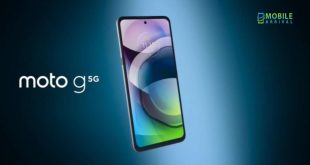
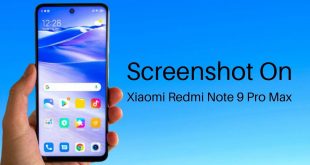




3 comments
Pingback: Best Smartphones of 2019 - MobileArrival's pick - Mobile Arrival
Pingback: Huawei Mate 20 X 5G - TENAA certified - Upcoming - Mobile Arrival
Pingback: Android 10 now rolling out to Huawei Mate 20 Pro - Mobile Arrival